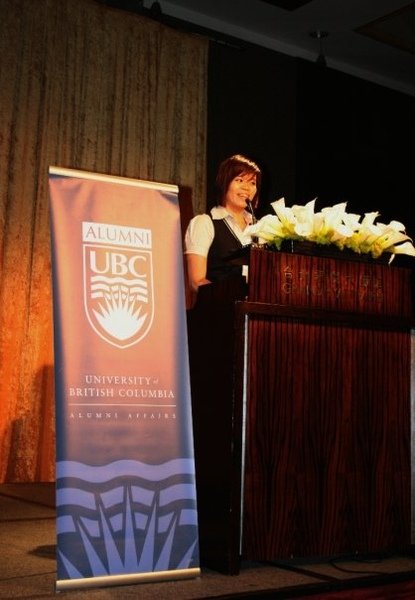Both Sides Now
She insists that only music moves her, but A-MEI is a Taiwanese voice reverberating in China

All A-Mei wants to do is sing, sweetheart, use that smoke 'n' sugar voice of hers to deliver a tune. The Taiwanese pop star doesn't much care about lyrics, just the mood-ring colors her music conjures up. Today, sitting in a candle-filled studio in Taipei where she's recording her next album, A-Mei is straining for a color, and she has the precise shade in mind. The background music is low funk, and A-Mei hums her way up the spectrum, eyes closed, past turquoise, sapphire and lapis lazuli. No words, just a husky voice scatting along until it settles into the perfect note—a sultry, soulful shade you would see at midnight.
"Did I make you feel blue, baby?" A-Mei opens her round eyes and fixes them on her guitarist. "Because I want you to feel like you've been swallowed up by blueness." The guitarist assures A-Mei that he does indeed feel that particular shade, not least because he's been caught in the A-Mei vortex—a sexy, impish gaze that leaves men feeling, well, a little blushed. "Mission accomplished," she says, leaning forward to blow out a candle. "Tomorrow I want to sing red, the color of a cut when it first bleeds. And after that, green, like wet grass."
But music is not just an abstraction in A-Mei's world: it's one of the great uniters of China and the little renegade island it half despises and very much wants to absorb—A-Mei's native Taiwan. When a Taiwanese singer evolves into a pop star, his or her main audience is across the strait in megalopolises and villages throughout the vast mainland. Fame and popularity have proved that to A-Mei. What the 29-year-old singer has also learned is that what unites can divide, that her songs can acquire shades of meaning she never intends, that a mere song can hurt, alienate, maybe cause a war when, as W.H. Auden wrote, " ... each ear/ Is listening to its hearing, so none hear." "I just want to sing," says A-Mei. "But everyone keeps connecting my music to the future of Taiwan and China." And that's how it's going to be: music joins the sundered parts of Greater China. Someone—in this case A-Mei—has to sing the songs.
A-Mei was born in the rugged mountains of eastern Taiwan, as a tribal princess of the Puyuma clan of aborigines. Making up just 2% of the island's population, Taiwan's aborigines have been reduced to kitschy tribal song and dance at ethnic theme parks. City folk disparage them as drunks and hookers—the disenfranchised underbelly of Taiwan. But historically, the Puyuma have always used song to communicate their deepest feelings, and A-Mei sang the loudest of all, quickly rising from small-time ethnic performer to pop-chart diva for the entire Chinese-speaking world. Proud of her native roots, A-Mei incorporated tribal rhythms into some of her pop songs, like Sister, which celebrates the matriarchal aboriginal society.






